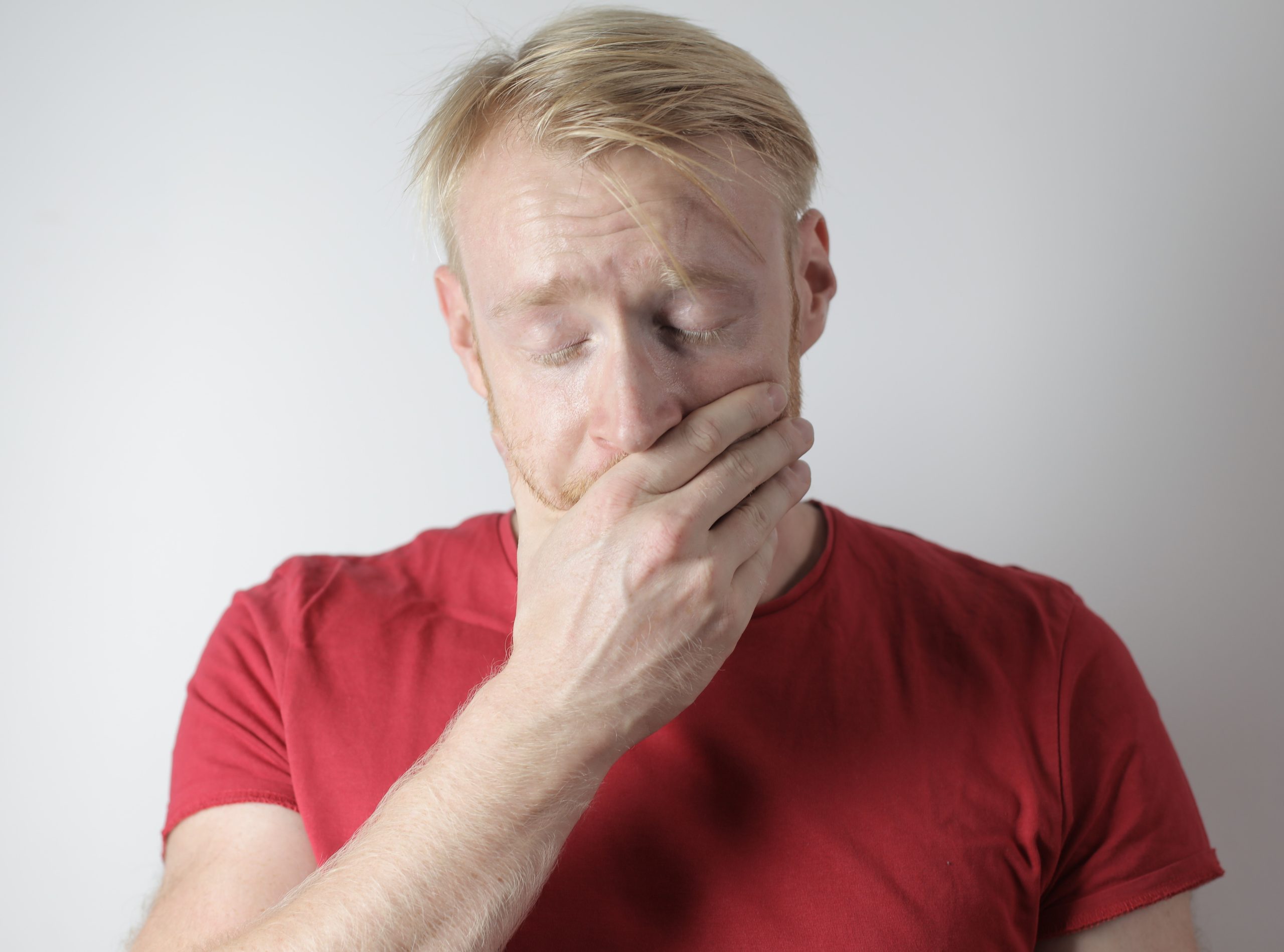Jaw pain can be a concerning symptom, as s a consistent ache or an occasional case of discomfort. It impacts your ability to function and makes eating or speaking difficult. As there can be several causes of jaw pain, a popular question most people ask is “why does my jaw hurt?”
Determining the cause of the pain, whether it’s from an injury, infection, or dental problem is the first step to figuring out the proper cure for the pain.
Why Does My Jaw Hurt?

Jaw pain can have a variety of causes and symptoms, which makes it difficult to diagnose. Some common reasons for jaw pain include:
- Poor posture or incorrect movement when chewing food or speaking. This can cause strain on the muscles in your jaw and neck that support your mouth, leading to pain in these areas. One way to correct this is to practice good posture and be aware of how you move your mouth when eating or talking.
- Bruxism or teeth grinding or clenching. Bruxism is the name given to teeth grinding and clenching. It occurs when you grind your teeth together, usually during sleep. Although it happens during the night, bruxism can happen during the day as well, though this tends to be less common. Teeth grinding can have a number of different causes, including stress and anxiety, misaligned teeth or jaws, or the use of certain medications. It can also be caused by other health conditions such as Parkinson’s and epilepsy, or it may be linked to disorders such as sleep apnea.
- Arthritis or other degenerative joint conditions. These can cause the joints in your jaw to become inflamed, causing pain and stiffness.
- Jaw injury from a fall or other accident. This can damage the bones, muscles, ligaments or tendons in your jaw, causing pain.
- Injuries to the face or head from a fall or other accident. These injuries can cause damage to the nerves that run through your jaw and facial muscles, causing pain.
- Tumors in your mouth or neck area, can press on nearby nerves or bones and lead to pain.
- Dental problems, such as an abscessed tooth or impacted wisdom tooth. These can cause pain in your jaw as well as other symptoms.
- Infections in your mouth, throat or sinuses. These can lead to pain and swelling in your jaw area.
- Stress or anxiety. This can cause muscle tension and spasms, which can lead to pain in your jaw.
- Temporomandibular joint (TMJ) syndrome. This condition causes pain and stiffness in the joints that connect your lower jawbone to your skull. It’s often caused by arthritis, injury or dental problems and is sometimes triggered by stress or anxiety.
If you are experiencing jaw pain, it’s important to see a doctor or dentist to determine the cause and get appropriate treatment. And if you have other symptoms along with your jaw pain, such as fever, dizziness, headache or earache, seek medical attention right away.
Relief Tips for Jaw Pain
Remember that you should always consult with your physician the moment you feel any kind of discomfort in your mouth.
However, if you can’t contact your dentist or your doctor right away, these tips can help ease the symptoms until you can schedule an appointment with your physician.
Tips for relieving jaw pain include:
- Apply heat or cold packs to the area to reduce inflammation and relieve pain. This can be done by wrapping an ice pack in a towel and holding it against your jaw for several minutes, or placing a warm water bottle gently on the area for about 10-20 minutes at a time.
- Take over-the-counter pain medications such as ibuprofen or acetaminophen. Note that you should consult your physician before taking these medications to make sure that they’re right for you and that you won’t have any allergic reactions to them.
- Practice good posture and be aware of how you move your mouth when eating or talking to avoid strain on the muscles in your jaw and neck.
- Practice gentle jaw exercises and stretches to help relieve pain and tension. For example, try opening and closing your mouth without using your teeth for several seconds at a time.
- Wearing a mouth guard at night if you grind your teeth (bruxism). This can help prevent damage to your teeth and jaw and relieve pain. If you’re suffering from bruxism you should also consider some lifestyle changes like avoiding caffeine, sleeping on a special night guard, using stress reduction techniques, and seeing a dentist or a doctor to treat any underlying health conditions that may be causing the problem. It’s important not to overlook bruxism as it can contribute to damaged teeth, enamel erosion, jaw pain, tension headaches, and sleep disruption.
- Managing stress or anxiety to help reduce muscle tension that can lead to jaw pain. This may include relaxation techniques, such as deep breathing or meditation, and making time for activities you find relaxing, such as reading a book or going for a walk.
For recurring jaw pain:
- See a physical therapist or chiropractor as they can help with jaw pain caused by joint problems. They can provide exercises and other treatments to reduce inflammation and relieve pain.
- Talk to your dentist about possible dental causes of your jaw pain and ways to treat them. For example, if you have an abscessed tooth, they can prescribe antibiotics to clear the infection and treat it with the necessary dental procedure.
You can also seek professional help or talk to your doctor about resources for support and treatment.
If your pain is severe or persists for more than a few days, schedule an appointment with your doctor or dentist to determine the cause and get appropriate treatment. For other symptoms along with your jaw pain, such as fever, dizziness, headache or earache, seek medical attention right away.
What is TMJD (Temporomandibular Joint Disorder)?

TMJD, or temporomandibular joint disorder, is a condition that can cause pain and dysfunction in the jaw joint. The TMJ is the joint that connects the lower jaw to the skull. It is responsible for allowing the lower jaw to move up and down and side to side.
An estimate of more than 10 million Americans are affected by TMJ and the rate is higher among young people.
The disorder can be caused by a variety of factors, including poor posture, teeth grinding or clenching, arthritis, and injury to the jaw. Symptoms of TMJ may include pain in the jaw joint area when chewing or talking. There’s also limited movement or locking of the jaw.
Other symptoms include clicking, popping, or grating sounds in the jaw joint as well as difficulty swallowing, earaches, and headaches.
Treatment for TMJD
There are many treatments for TMJ disorder, including lifestyle changes like avoiding behaviors that may trigger symptoms, such as teeth grinding. Wearing pressure-relieving mouth guards and physical therapy for muscle pain and joint dysfunction can also be recommended by the doctor.
There are also irreversible treatments such as surgical procedures and implants but unless they are highly recommended by the physician, most suggest that they should be avoided.
If you are experiencing signs or symptoms of TMJ disorder, it is important to consult with your doctor to determine the best course of treatment for you. With early diagnosis and appropriate management, it is possible to manage symptoms and prevent further complications from occurring.
See Your Doctor Immediately
Jaw pain doesn’t always mean that it’s serious, but if it’s recurring and it comes with other kinds of symptoms like headache or swelling, then it could be a sign of a more serious condition.
Some indications that you should go seek medical help are:
- You have a hard time eating, swallowing, chewing, or drinking.
- The movement of the mouth is limited.
- You have a fever and swelling in some areas of your mouth.
- There’s an unpleasant taste and smell coming from your mouth.
Once you feel like your jaw is hurting and the pain isn’t going away soon, head over to your doctor or dentist immediately and don’t wait for an appointment or for the condition to become worse.
Although accidents happen, you can minimize the risk of getting jaw pain by exercising and practicing good posture.
You should make it a point to visit your dentist regularly and get a periodontal examination every six months. This will help detect potential problems early and stop dental issues from developing.




